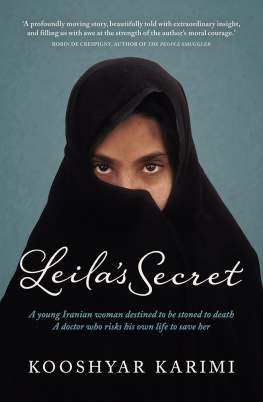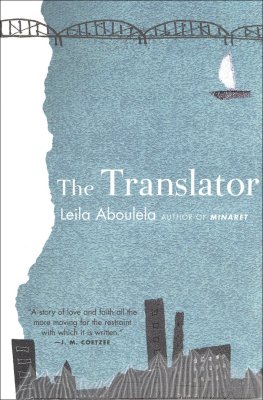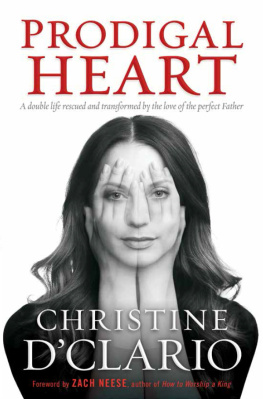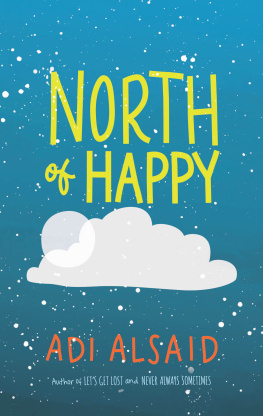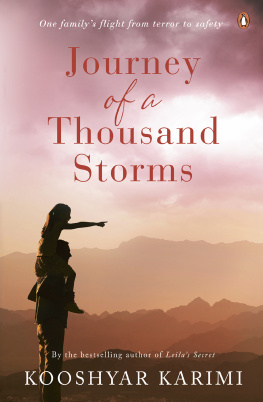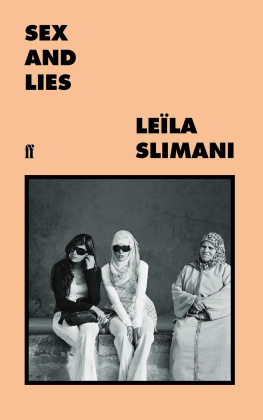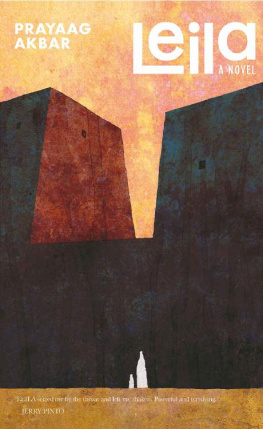Kooshyar Karimi - Leilas Secret
Here you can read online Kooshyar Karimi - Leilas Secret full text of the book (entire story) in english for free. Download pdf and epub, get meaning, cover and reviews about this ebook. year: 2015, publisher: Penguin Random House Australia, genre: Science fiction. Description of the work, (preface) as well as reviews are available. Best literature library LitArk.com created for fans of good reading and offers a wide selection of genres:
Romance novel
Science fiction
Adventure
Detective
Science
History
Home and family
Prose
Art
Politics
Computer
Non-fiction
Religion
Business
Children
Humor
Choose a favorite category and find really read worthwhile books. Enjoy immersion in the world of imagination, feel the emotions of the characters or learn something new for yourself, make an fascinating discovery.
- Book:Leilas Secret
- Author:
- Publisher:Penguin Random House Australia
- Genre:
- Year:2015
- Rating:4 / 5
- Favourites:Add to favourites
- Your mark:
Leilas Secret: summary, description and annotation
We offer to read an annotation, description, summary or preface (depends on what the author of the book "Leilas Secret" wrote himself). If you haven't found the necessary information about the book — write in the comments, we will try to find it.
Born in a slum to a Muslim father and a Jewish mother, Kooshyar Karimi has transformed himself into a successful doctor, an award-winning writer, and an adoring father. His could be a comfortable life but his conscience wont permit it: he is incapable of turning away the unmarried women who beg him to save their lives by ending the pregnancies that, if discovered, would see them stoned to death.
One of those women is 22-year-old Leila. Beautiful, intelligent, passionate, she yearns to go to university but her strictly traditional family forbids it. Returning home from the library one day among the few trips shes allowed out of the house she meets a handsome shopkeeper, and her fate is sealed. Kooshyar has rescued countless women, but Leila seeks his help for a different reason, one that will haunt him for years afterwards and inspire an impossible quest from faraway Australia.
For all its tragedy, this unforgettable book is paradoxically uplifting, told from the heart of Kooshyars immense sympathy, in the hope that each of us and the stories we tell can make a difference.
[A] remarkable book . . . Karimi earns our trust through his experiences and his sympathy with the plight of the marginalised. Owen Richardson, Saturday Age
A profoundly moving story, beautifully told with extraordinary insight, and filling us with awe at the strength of the authors moral courage. Robin de Crespigny, author of The People Smuggler
A riveting account of one girls innocent spirit defying the tyranny of Irans crushing regime. It is a masterpiece of moral impossibilities and climactic suspense. Bob Brown
An absolutely stunning book. Leilas story is deeply affecting and Kooshyar Karimi is a consummate storyteller. Shirley Walker, Author of The Ghost at the Wedding
Leilas Secret brims with compassion and yearning and eloquently shares the story of a regime suffocating its people and losing all that was great about it. To read this book is to see inside a culture and understand the desperation of its people. The Hoopla
Compelling and powerful. Sunday Age
Inspiring . . . often harrowing . . . Offers insight into how and why one man is willing to put the welfare of others before his own safety. Townsville Bulletin
Kooshyar Karimi: author's other books
Who wrote Leilas Secret? Find out the surname, the name of the author of the book and a list of all author's works by series.

